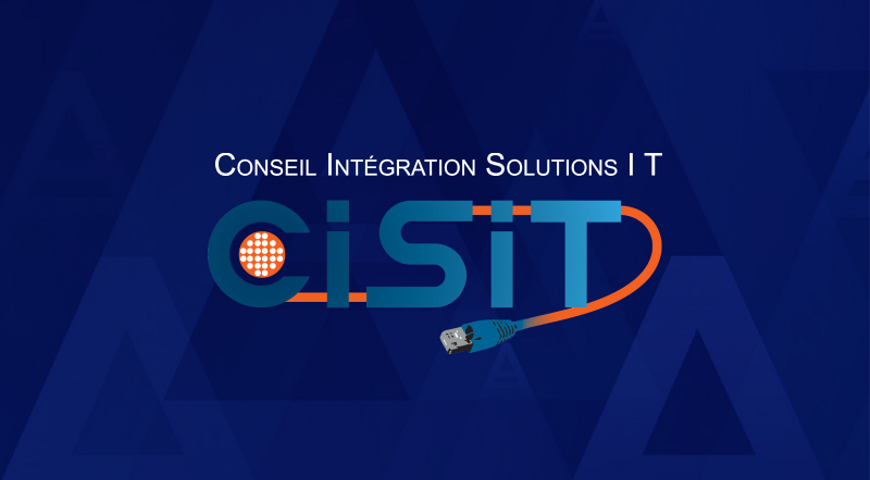Choosing the best cloud backup service for your needs can be a daunting experience. Whether you're shopping for a cloud backup for your personal use, your business, or the clients of your service provider organization, choosing the right one is an essential step toward protecting all the data that makes up your digital world.
Finding the most suitable backup service for your needs will depend largely on the volume and variety of data you're looking to protect. A college student won't need the same kind of protection that a small-to-medium business will. Similarly, a company won't need the same protection as a service provider.
Whatever your cloud backup needs, read this guide to find the best cloud backup for you.
What is a cloud data backup?
Cloud backup, also called "online backup" or "remote backup", is a backup strategy for copying physical or virtual files or databases and sending them to a secondary secure storage space located off-premises to preserve the copied data in case of hardware failure, system outage, natural disaster, cyberattack, or human error. Following a data-loss event, users can restore data from the cloud backup to their primary environment or secondary systems.
The cloud storage and backup services are typically hosted via SaaS providers or third-party cloud backup services. The provider usually charges customers a recurring fee (subscription) based on storage capacity used, user volume, server volume, data transfer bandwidth, number of initiated data recoveries, and others.
Organizations can leverage an online backup service to improve data protection practices, business continuity, and regulatory compliance requirements without overburdening their on-premises IT teams.
Most online backup services rely on a monthly or yearly subscription and can be used by individuals, SMBs, and large enterprises since the cloud offers unlimited storage space. Nonetheless, behemoth companies handling the most significant data volumes shouldn't rely entirely on cloud backup but instead, use it as part of a comprehensive backup strategy alongside physical local and offsite data backups.
The four primary types of cloud backup services
Cloud backup services come in four primary forms - SaaS, IaaS, PaaS, and BaaS.
- Software-as-a-Service (SaaS)
SaaS is a cloud-based software delivery model that enables third-party providers to host and deliver applications to customers via the internet. SaaS examples are G Suite, Microsoft 365 (formerly Office 365), and customer relationship management (CRM) software.
- Infrastructure-as-a-Service (IaaS)
IaaS is a cloud-computing model that allows companies to purchase or lease computing infrastructure (e.g., servers, storage) over the internet. IaaS examples include Microsoft Azure, Google Cloud Platform, Amazon Web Services, etc. IaaS requires more effort and resources but gives organizations complete control over the infrastructure; they can configure, deploy, and manage it per their preferences and requirements.
- Platform-as-a-Service (PaaS)
PaaS is a cloud-based development and deployment platform that grants developers the required components, tools, and services to build, deploy, and manage various apps. PaaS examples include Amazon Elastic Beanstalk and Google App Engine. PaaS platforms ensure users have all the required tools and services to oversee the entire app development cycle - creation, testing, debugging, and deployment. The processes reside within the cloud, meaning customers don't have to purchase or configure additional infrastructure.
- Backup-as-a-Service (BaaS)
BaaS presents cloud-based backup software to enable clients to replicate, store, and secure their critical data. BaaS examples include Microsoft Azure Backup, Amazon Glacier, and more. BaaS solutions leverage automation to ensure a secure, reliable, and cost-effective backup process for clients.
But what is "the Cloud"?
"The Cloud" is short for cloud computing, a general term describing hosted services (and resources) delivered over the internet. Unlike web hosting, cloud services offer their services on demand, allowing optimal flexibility for clients. A subscriber to a cloud service can use as little or as much as needed, with the service provider managing the entire service offering.
Moreover, a cloud can be public or private. Public clouds offer their services to every user with internet access, while private clouds procure hosted services to limited clients within the business.
Cloud backup use cases
Organizations can utilize cloud backup differently, depending on their data-creation habits, backup needs, and recovery and compliance requirements. Let's explore the most common cloud backup types below.
- Direct public cloud backup
The first cloud backup option lets organizations duplicate and store essential data in a public cloud. This approach demands data to be written directly to the cloud provider (e.g., Google Cloud, AWS).
Companies must use their own backup software to create data copies and send them to the public cloud storage. Cloud storage services ensure the storage (destination) and safekeeping of backed-up data. However, the provider doesn't necessarily provide a backup option of their own.
Businesses must ensure a backup solution compatible with the public cloud's interface. Moreover, backup admins should also consider data encryption, identity management, and access controls to fortify backups sent to the cloud.
- Online cloud backup platforms
Online backup services can be an excellent option for companies that don't want to rely on hardware-based backups. In this approach, organizations get an all-in-one backup solution that includes the backup software, server, and storage capacity. Such solutions are easy to pilot and can be automated to create continuous (or "scheduled" backups) without human supervision. They also typically provide seamless transfers to different cloud backup services (public and private clouds).
Moreover, dedicated backup providers can retain local copies of cloud backup data to enable local recovery, thus minimizing downtime and data transfer costs.
- Backup to service provider storage
The following approach refers to organizations writing backup data to a SaaS/cloud provider offering backup services within a managed data center. In this case, the vendor can provide a backup solution as part of its offering or leave backup creation to the client, with the vendor only ensuring support and compatibility with commercially available backup tools.
- Cloud-to-cloud (C2C) backup
Cloud-to-cloud backups are a game-changer in the data backup world. This approach excels at backing up data that already resides in the cloud. The cloud data can either be stored in a cloud backup service or created via SaaS applications (e.g., M365)
C2C backup copies data from one cloud to another, with the service provider typically hosting the backup process software.
How does cloud backup work?
Cloud backup requires copying essential data at a local (on-premises) site and transferring it to an offsite (cloud) storage system where users can easily access files for disaster recovery purposes. The backup process involves several primary steps:
- Backup admins must select what data to back up, including files, folders, databases, apps, etc. (Data Selection)
- Admins must transfer the copied data (local backups) to the cloud provider's data centers via direct transfer or customized backup software. (Data Transfer)
- The cloud storage service stores the backups at several data centers to ensure redundancy and implements high-grade data security to ensure data integrity, accessibility, and recovery availability. (Data Storage)
- After the initial full backup, cloud backup solutions can transfer only new or changed data to cloud storage via incremental backups. This approach saves bandwidth and optimizes storage expenditure. (Continuous backup)
Individuals and companies can implement four primary backup approaches to safeguard critical data in the cloud:
- Full backups
Full backups (e.g., full disk image backup) comprise all required data to initiate a continuous backup process. Such backups are the foundation of a sensible backup strategy. They take the most time to complete but offer complete data disaster recovery.
- Incremental backups
Incremental backups only save changed data since the last full or incremental backup to optimize resource expenditure. They are quicker to create but may take longer to restore files as you'd need all relevant incremental backups and the initial full backup to initiate disaster recovery.
- Differential backups
Differential backups comprise changed data since the last full backup. They take more storage space than incremental backups but simplify the data recovery process as they only require the current full backup and the last differential copy.
- Snapshot backups
Snapshot backups only copy the required settings and metadata to restore your backups in a data-loss event. However, this approach still requires users to store the source files for the snapshots in a separate location to be able to restore them.
How secure are cloud backup services?
Storing critical data on the cloud can ensure quick recovery of corrupted or deleted files. However, the cloud isn't immune to data compromise events like cyberattacks (e.g., ransomware). The best cloud backup services implement cybersecurity best practices and protocols to safeguard cloud data and ensure clients can safely and securely restore backups whenever needed.
Let's explore the primary elements of cloud security below.
Military-grade file encryption
In a world where data is the most valuable business asset, encryption is imperative to secure backups during transfers and in storage. Encryption grants companies a private encryption key so only authorized users can access confidential or sensitive data. No unauthorized third party can read encrypted backups without the decryption key.
This approach to data security involves encrypting the data on-premises before it leaves the company servers and maintaining the encryption during transmission and in the cloud.
Data center physical security
Cloud service vendors leverage high-end physical security measures to fortify their data centers. Such measures can include access controls, surveillance, and environmental controls to protect the storage infrastructure and servers from various threats. (e.g., physical compromise, overheating)
Access controls
Sensible access controls and multi-factor authentication are crucial to safeguard cloud system resources. Two-factor authentication, strong passcodes, and role-based access control (RBAC) can ensure that only authorized users can access and manage online backup data. Such security implementations can add multiple protection layers to fortify cloud information against cyber threats and human error.
Data immutability
Data immutability leverages the write-once-read-many (WORM) approach to prevent unwanted (accidental or malicious) changes to backup data in the cloud. The tactic aims to block ransomware from modifying and corrupting critical data.
Network security
Secure online storage requires robust network configurations, intrusion detection and prevention systems, and firewalls to block cyber threats and unauthorized access from malicious parties. Secure network configurations can include various elements, such as private network connections and Virtual Private Clouds (VPCs).
Regulatory compliance
Most businesses must adhere to different industry- and regional-based data residency laws. Robust cloud services can streamline regulatory compliance via data storage transparency and strong data integrity and availability protocols.
Potential risks to data stored on the cloud
As mentioned, data residing on the cloud can fall victim to different risks. The threats to cloud backups vary depending on the type, sensitivity, and volume of stored data but can commonly include the following:
Cloud data compromise
While the cloud is an excellent offsite backup option protected by high-grade encryption, threat actors can still develop ways to bypass specific encryption types. (e.g., via stolen credentials or brute force attacks)
However, cloud vendors can counter such attempts by encrypting data even before it arrives on the cloud.
Data control issues
If an organization relies on a third-party provider to store its data, it won't have any control over data handling and integrity procedures during a cloud breach. If the cloud service provider experiences technical issues or other service infrastructure problems, the client company won't be able to access cloud data at will.
Internet connection compromise
Cloud backup companies require clients to have a stable, secure internet connection to access cloud data. A faulty internet connection can hinder data access processes and lock the company out of its data until the issue is remediated.
Backup service issues
Not every online backup service offers equal features regarding data backup and protection. Organizations must take the time to explore available vendor options to ensure their chosen solution is compatible with their needs and preferences.
Moreover, businesses should ensure regular, continuous local backup to a physical external drive to satisfy the 3-2-1 Rule of Backup. This way, even if a compromise occurs in the cloud, they'd still have access to their data via the local backups.
When choosing a reputable cloud service provider, organizations should inspect several critical elements, such as the provider's reputation and customer reviews, its implemented tech to protect cloud data, the provider's cloud privacy policy, and whether the cloud option is free or paid.
What is the difference between cloud storage and cloud backup services?
Although "cloud storage" and "cloud backup" overlap in some functions, the two aren't interchangeable regarding critical data protection.
Cloud storage refers to a service model in which data is transferred and stored on remote systems. The data can then be accessed from multiple devices over the internet. The primary benefits of cloud storage solutions are easy data access, file sharing, and collaboration features. Potential disadvantages of cloud storage include loss of control over stored data, network connection issues, and increased costs over time.
The three types of cloud storage are public, private, and hybrid.
- Public cloud storage stores data in the service provider's data center, with clients paying for the service based on several factors, such as accessed data volume and frequency.
- Private cloud storage is usually integrated within the in-house storage infrastructure, protected behind the company's data security protocols. Such an approach typically requires a higher level of customization, management, and control over stored data.
- Hybrid cloud storage comprises features from both public and private cloud storage.
While cloud storage is designed for everyday use, cloud backup focuses on sending reliable, up-to-date data copies to an offsite server (the cloud) for safekeeping and reliable recovery following a data-loss event.
Cloud storage itself requires sensible cloud backup. Even if some cloud storage providers leverage high-tier resilience and redundancy protocols, organizations should create regular, dedicated backups of cloud storage data to ensure quick recovery in a data breach or disaster event. For example, Microsoft Azure data can be backed up via native tools or third-party backup software.
The table below explores the primary aspects (and differences) of cloud storage and cloud backup.
In summary, we can differentiate between cloud storage and cloud backup via three primary elements:
- Purpose
Cloud storage focuses on data accessibility and collaboration, while cloud backup software emphasizes data protection and disaster recovery.
- Frequency of use
Cloud storage is designed for everyday use from multiple computers (and users), while cloud backup is typically only accessed for backup auditing, testing, and data recovery purposes.
- Data security
While both approaches offer some form of encryption, cloud storage focuses more on accessibility than cybersecurity. In contrast, cloud backup is designed to implement robust data security features to protect data at rest and in transit from various threats, including human error, cyberattacks, and natural disasters.
Online backup services vs. Online Syncing
Online syncing (or cloud syncing) sounds a lot like cloud backup for many users. Moreover, many cloud storage providers offer syncing features that faintly resemble dedicated data backups. For example, a cloud storage syncing service can automatically send media files (e.g., photos) from your smartphone to the cloud once you create them.
However, file syncing isn't a "true backup" approach. A syncing service syncs changes to data across all the user's devices. While this is convenient for data access and sharing, it's a risk to data security and integrity.
Suppose a file on one device is infected with malware. After the next sync cycle, the infected file will be synced to all user devices. Once that happens, all your files will be at risk, regardless of their location. The same goes for accidental deletion - if you delete a file from one of your devices, it will be deleted from the cloud and other devices after the next sync cycle. Moreover, if multiple users can access synced data, editing it may cause issues due to different file versions attempting to sync simultaneously.
In summary, cloud syncing is convenient for file access and sharing across several user devices but doesn't create dedicated backups. While the feature merely syncs file versions across your devices, dedicated cloud backup can create regular, continuous data copies and store them securely to enable data recovery in the event of accidental deletion, data corruption, or data loss.
Traditional vs. Cloud vs. Hybrid Backup
Having the right tool for the job is important, but the best hammer in the world won't help you if you don't know how to swing it. Before choosing the best cloud backup service for your situation, ensure you understand how to use these solutions to provide the highest level of data protection.
Good: Traditional Backup Solutions
Traditional backups allow you to make a full image backup of your system disk and store it locally on a network share located on a server, network-attached storage (NAS), or an external device, like a USB drive.
Better: Cloud Backup Solutions
Cloud backups allow you to create a mirror image backup and upload it via the internet to a network of servers, providing secure, off-site storage.
Best: Hybrid Cloud Backup
For the most reliable data protection at home, in the office, or among your business' clients, maintain three copies of your data in at least two locations, one local and one offsite.

The three use cases of Cloud Backup - Personal, Business, and Managed Service Providers
Individual users, businesses, and managed service providers (MSPs) can use dedicated cloud backup. All three use cases differ regarding backup scale, customization, and expenditure but have a common goal - safeguarding important data and enabling rapid recovery in a data-loss event.
- Cloud backup for home users
Cloud backup for personal use can often refer to transferring essential data to a public cloud, such as Google Workspace, AWS, Microsoft Azure, and Dropbox.
Home users can manually upload essential files and folders to public clouds and even use the service for free up to a specified storage limit. After a successful upload, the user can access cloud data over the internet from various devices or locations. However convenient, using a public cloud can raise some issues for home users.
For example, free storage space is limited, meaning you can quickly run out of backup storage, especially if you want to secure larger newly-created files (photos, videos). Moreover, public clouds offer the same storage infrastructure to all users - you can't customize how specific data types are treated, which can expose it to cyber threats.
As a higher percentage of public clouds are designed for collaboration rather than dedicated backup, users must take the time to fortify uploaded data and continuously protect backups via additional cybersecurity tools. This means relying on multiple licenses to safeguard backup data, which can lead to increased expenses. Moreover, managing several solutions to protect critical files leaves room for human error. Unless you design and follow a strict backup schedule and stick to only the best cyber hygiene practices, you risk exposing your data to accidental deletion, cyberattacks, and hardware/software failure.
On the other hand, relying on a dedicated backup solution can eliminate the need to constantly monitor the backup status and manage backup processes in the cloud. A robust third-party solution, such as Acronis True Image, can help you automate backups while optimizing storage space. Moreover, you can control the entire backup process from a centralized console to ease management and ensure your data is secure via high-grade cybersecurity capabilities.
- Cloud backup for business
In general, cloud backup options can provide an additional protection layer without investing extensive resources. The approach has many advantages for businesses but carries some risks if mismanaged. Let's go over both below so you, as a business, can make an educated decision on implementing cloud backups as part of your comprehensive backup strategy
Cloud Backup Advantages
Potential cloud backup disadvantages
Cloud backup software is among the most significant offerings an MSP can provide in the modern-day cyber threat landscape. A cloud backup offering enables the MSP's clients to diversify their backup strategy and ensure rapid recovery, boosted by virtually unlimited storage and scalability.
Cloud backup software can grant MSP customers numerous benefits, including enhanced cost control, 24/7/365 disaster recovery, data and app security, optimized RTO and RPO objectives, proactive monitoring, and more.
MSPs offering a robust cloud backup solution can ensure their clients benefit from the following:
- A streamlined process for automated backups and meeting compliance requirements.
- Reduced costs from not having to set up (and maintain) local backup infrastructure.
- Reduced costs, effort, and time spent on securing the transport of tape (physical) backups.
- Easy data access to quickly locate and recover critical business data.
- Multi-site backup to complement the 3-2-1 Rule of Backup.
- Access to a multi-purpose cloud backup solution to ensure top-tier cybersecurity for client networks.
A dedicated cloud backup and cybersecurity solution added to your MSP's offering can counter cyber threats, support operational efficiency, and secure backups behind the walls of a Cloud fortress.
Best Personal Cloud Backup
The best personal cloud backup services are easy to use and affordable. These solutions are ideal for home users looking to protect a relatively small volume of data – between one and five devices and anywhere from 100 GB to five TB of cloud storage. While there are various personal cloud backup options, the best cloud backup for pictures, videos, music, personal files, and mobile devices offers more than basic backup capabilities.
What should The Best Personal Cloud Backup Solution Offer?
Increased accessibility through cloud-based sync and share. This feature makes it easy to share family photos, videos, etc., while protecting your files from accidental edits or deletion.
Rapid recovery times in the event of data loss. The most crucial aspect of cloud backups is the ability to quickly and reliably recover files when (not if) they're damaged or lost.
Ability to restore to dissimilar hardware. You deserve flexibility from your backup solution, including the ability to recover any file you need to whatever device you choose.
End-to-end data encryption. Whether you choose a public or private cloud service, keeping your data protected and private should be a top priority. With end-to-end encryption, you know that whatever you back up and store is safe in the cloud.
Keep in Mind:
The best cloud backup for a Windows machine may not be the best cloud backup for Mac or mobile devices. Ensure that your backup solution will protect all your data sources before deciding.
Versatility is key. The best personal cloud backup gives you as much choice as possible. Look for solutions that allow backup of your full image, specific folders and files, active disk cloning, event-based scheduling, non-stop backups, and a boot media builder. Not all services can offer all of these benefits.
Acronis True Image for Personal Use
Compatible with Windows, Mac, iOS, and Android operating systems, a subscription to Acronis True Image (formerly Acronis Cyber Protect Home Office) offers a way to back up all your devices and data with integrated cloud storage. You control where your data is stored – from external hard drives and local network folders to NAS devices and offsite in the cloud or any combination of these locations.
Acronis True Image unlocks a simple user experience with a wizard-style interface that makes navigating, scheduling, tracking, and recovering your backups incredibly easy.

Best Cloud Backup Service for Businesses
In the business world, scale is always a point of emphasis. Regarding cloud backup, it's the main point of differentiation between the best cloud backup service for small businesses and the best enterprise cloud backup services. Whatever your organization size, however, some universal indications of quality in business-grade cloud backups will help ensure all your IT needs are met, and your business is always up and running.
What should The Best Cloud Backup Service for Businesses Offer?
High levels of customization. With an array of options for backup scheduling, destination selections, and cutting-edge AI- and ML-based protection capabilities, you can help minimize downtime and ensure business continuity by keeping your most vital components up and running 24/7/365.
Scalable backup and restore options. The size of your business and the kind of data you collect/employ will be significant factors in your backup choice. The best cloud backup for Windows servers, virtual hosts, individual workstations, and applications like Microsoft 365 will vary. The best cloud backup service for your organization's needs will be based entirely on your IT stack and add-on components.
Platform- and system-agnostic protection. As your business continues to grow in terms of headcount, global coverage, and technology, what you demand from your backup solution will as well. The best cloud backup service must protect virtual, physical, cloud, and mobile platforms and Windows, Linux, Apple, iOS, and Android technology. This helps ensure that however you grow, your protection can keep pace.
Keep in Mind:
Data protection regulations are constantly evolving. Even with the best cloud backup solution, some data sovereignty concerns may exist, particularly for larger, global organizations. Many of the best enterprise cloud backup services — and even some of the best cloud backup services for small businesses — now account for this with integrated regulation compliance capabilities. Investing in solutions like these may prove invaluable as digital regulations become stricter.
"Recovery" isn't the same as "back in business". When data loss occurs, almost every backup service on the market will help you recover what you lost. However, how long that process takes (and, therefore, how costly the downtime is) will vary. The best cloud backup will include disaster recovery functionality that allows rapid recovery time objectives (RTOs) by temporarily running your systems in the cloud to get your business back up and running in mere minutes.
Acronis Cyber Protect for Business
Acronis Cyber Protect (formerly Cyber Backup) is the most reliable and easy-to-use backup for businesses of all sizes. You can protect your organization's data wherever it lives – on local devices, remote devices, servers, and in the cloud — all from a centralized, unified control interface. Today, this protection extends to 21 separate platforms, from individual mobile devices and endpoints to physical servers, virtual servers, and cloud storage from Acronis, Microsoft, and Amazon.
Acronis Backup users can access a wealth of backup options for all these platforms, including file and folder backup, incremental backup, differential backup, disk cloning, and full image backup. These backup files can be stored, cloned, and restored to any protected platform at any time – with your most crucial business processes operational in just minutes.

Best Cloud Backup Service for Service Providers
As a service provider, you must stay at the forefront of technology to stay competitive. That means you need to offer the best cloud backup service available to your clients. The trouble is, there's now an ever-growing number of use cases your clients will expect from their cloud storage solution. With a growing number of clients and the increased complexity of their IT infrastructures, you must find a solution with all the capabilities needed for the best enterprise cloud backup while retaining the reliability, flexibility, and scalability your clients require.
What should The Best Cloud Backup Service for Service Providers Offer?
Flexible management options. MSPs must meet various client needs and infrastructures, so every step of your cloud backup offering – from deployment and storage to licensing and billing – should be adaptable. To protect essential client data, the best cloud backup for service providers integrates with critical services, such as Odin, HostBill, Flexiant, WHMCS, ConnectWise, Google Cloud, Microsoft Azure, Autotask, and Kaseya.
Seamless, global scalability opportunities. As your organization grows and acquires clients around the world, the ability to adapt your cloud backup service is critical. This extends from multi-tenant, multi-tier cloud architecture adjustments to 24/7 support in multiple languages.
Keep in Mind:
Your branding should be your own. When searching for a cloud backup service, look for a solution that can blend with your existing brand. Some of the best cloud backup-as-a-service solutions give you total control – from client account feature access and data quotas to complete customization for branding.
Upfront costs can be prohibitive. Even the best cloud backup service with the most opportunity for a positive return on investment (ROI) can bring your growth to a halt if there are substantial day-one costs. This is especially true of cloud backup services requiring hardware and software installations. Be sure to factor these payments into your strategy. Better still, search for solutions with minimal upfront costs, which will help deliver a quicker ROI.
Acronis Cyber Backup Cloud for Service Providers
Acronis Cyber Protect Cloud protects any virtual, physical, and cloud environment. It can help you realize incremental revenues faster with zero upfront costs and its pay-as-you-go business model. Service providers can experience even faster backup and recovery times and meet compliance and business requirements more efficiently. Plus, Google Cloud and Microsoft Azure are built-in as native backup destination options.
No additional deployment is required, and Google, Microsoft, and Acronis cloud storage solutions are equally priced for optimal choice. With Microsoft 365 protection, disaster recovery services, an integrated anti-ransomware defense powered by artificial intelligence, and blockchain-based data notarization and authentication – Acronis Cyber Protect Cloud allows service providers to deliver features representing the best cloud backup service available.
Final Thoughts
Whether you're looking to protect your home PC, your company's infrastructure, or business clients worldwide, your data protection needs constantly evolve. With a thorough backup system, you can ensure that your data and business continuity are maintained. Today, that's not enough, however. To ensure ultimate protection in the modern-day cyber threat landscape, you must rely on a dedicated cloud backup solution. Cloud backup services offer the most comprehensive defense possible, with more accessibility and less downtime.
To find the most optimal cloud backup for your unique needs, compare your specific set-up and tech demands with the capabilities in the market today. With so many individuals and companies moving their data to the cloud, you have a wide choice in cloud backup services – but not all are created equal. Review your options using the offer details listed above to ensure your chosen solution is the best cloud backup service for you.
About Acronis
A Swiss company founded in Singapore in 2003, Acronis has 15 offices worldwide and employees in 50+ countries. Acronis Cyber Protect Cloud is available in 26 languages in 150 countries and is used by over 21,000 service providers to protect over 750,000 businesses.



